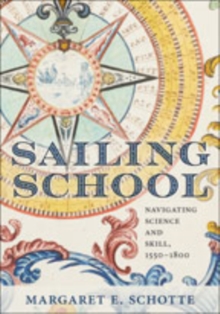
Leibniz Discovers Asia : Social Networking in the Republic of Letters Hardback
by Michael C. Carhart
Part of the Information Cultures series
Hardback
Description
How did early modern scholars—as exemplified by Leibniz—search for their origins in the study of language?Who are the nations of Europe, and where did they come from?
Early modern people were as curious about their origins as we are today.
Lacking twenty-first-century DNA research, seventeenth-century scholars turned to language—etymology, vocabulary, and even grammatical structure—for evidence.
The hope was that, in puzzling out the relationships between languages, the relationships between nations themselves would emerge, and on that basis one could determine the ancestral homeland of the nations that presently occupied Europe. In Leibniz Discovers Asia, Michael C. Carhart explores this early modern practice by focusing on philosopher, scientist, and mathematician Gottfried Wilhelm Leibniz, who developed a vast network of scholars and missionaries throughout Europe to acquire the linguistic data he needed.
The success of his project was tied to the Jesuit search for an overland route to China, whose itinerary would take them through the nations from whom Leibniz wanted language samples.
Drawing on Leibniz's extensive correspondence with the members of this network, Carhart gives us access to the philosopher's scintillating discussions about astronomy and mapping; ethnology and missionary work; the contest of the Asiatic empires of Muscovy, Persia, the Ottoman, and China for control of the Caucasus, the steppes, and the Far East; and above all, language, as the best indicator of the prehistoric genealogy of the myriad peoples from Central Asia to Western Europe. Placing comparative linguistics within Leibniz's intellectual program, this book offers extensive insight into how Leibniz built his early modern scholarly network, the network's functionality within the international Republic of Letters, and its limitations.
We see the scholar, isolated and lonely in little Hanover, with his hands on knowledge trickling in from scientific centers across Europe and around the world.
By the end of 1697—the year his network finally began to work—Leibniz laughed to one of his patrons, "I'm putting a sign on my door reading, 'Bureau of Address for China'!" Depicting Leibniz not as a philosophical authority but as a scholar with human limitations and frustrations, Leibniz Discovers Asia is a thrilling and engaging narrative.
Information
-
Available to Order - This title is available to order, with delivery expected within 2 weeks
- Format:Hardback
- Pages:344 pages, 13 Illustrations, black and white
- Publisher:Johns Hopkins University Press
- Publication Date:09/07/2019
- Category:
- ISBN:9781421427539
Information
-
Available to Order - This title is available to order, with delivery expected within 2 weeks
- Format:Hardback
- Pages:344 pages, 13 Illustrations, black and white
- Publisher:Johns Hopkins University Press
- Publication Date:09/07/2019
- Category:
- ISBN:9781421427539










